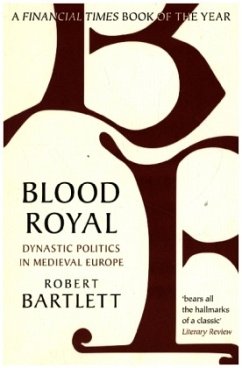Throughout medieval Europe, for hundreds of years, monarchy was the way that politics worked in most countries. This meant power was in the hands of a family - a dynasty; that politics was family politics; and political life was shaped by the births, marriages and deaths of the ruling family. How did the dynastic system cope with female rule, or pretenders to the throne? How did dynasties use names, the numbering of rulers and the visual display of heraldry to express their identity? And why did some royal families survive and thrive, while others did not? Drawing on a rich and memorable body of sources, this engaging and original history of dynastic power in Latin Christendom and Byzantium explores the role played by family dynamics and family consciousness in the politics of the royal and imperial dynasties of Europe. From royal marriages and the birth of sons, to female sovereigns, mistresses and wicked uncles, Robert Bartlett makes enthralling sense of the complex web of internal rivalries and loyalties of the ruling dynasties and casts fresh light on an essential feature of the medieval world.
'Integrating numerous translated quotes from key primary sources into a fluently written history, this wide-ranging, authoritative and colourful overview will prove to be of enduring relevance, as a great story for the general reader and a treasure trove for researchers.' Jeroen Duindam, author of Dynasties. A Global History of Power 1300-1800








